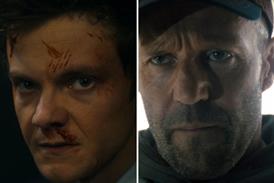UK-born director Lucy Walker talks about the challenges she faced making her nuclear weapons documentary Countdown To Zero, and why she was honoured to be one of a handful of women directors at this year’s Cannes film festival.
Countdown To Zero is British director Lucy Walker’s fourth feature documentary following Devil’s Playground, Blindsight and the 2009 Wasteland, for which she picked up the audience award at both Berlin and Sundance last year.
What inspired you to make a film about nuclear weapons?
“Since the advent of the Nuclear Age, everything has changed save our modes of thinking and thus we drift toward unparalleled catastrophe”, wrote Einstein. My motivation is to shake up these modes of thinking to stop this drift towards that unparalleled catastrophe. With a nod to Dr Strangelove (a movie which I am so glad we are able to license and include), my motivation was to make a movie that you could subtitle “How I Learned to Start Worrying and Hate The Bomb”.
In this film you interview Mikhail Gorbachev and Tony Blair, whilst in your last feature, Wasteland, your subjects were Brazilian garbage workers. What’s your secret to getting access to such a broad range of people?
A lot of hard work from a very good team, which paid off in the most magnificent breakthroughs. Like when I finally got the email from Gorbachev’s aide Pavel Palazhchenko granting me an interview date, I forwarded the email to the team and realized that it was the longest email chain I’d ever seen, dozens of pages long — I’d been pursuing him for over 18 months, and had met him twice already without being allowed to film, and finally that persistence paid off with a phenomenal interview.
If there is a “secret” it’s that I hope not just to earn the trust of the people in our films, but also to deserve it and reward it. I love that the people in my films are happy and proud that they chose to participate. It’s always delicate so I’m not sure if it’ll always be possible, but so far I’m happy to say that everyone in my films has been 100% positive about their participation.
What was the most challenging thing about making this film?
It was the hardest film I’ve ever made, and I specialise in hard ones! From getting the people in the movie to talk candidly about such a frightening topic, to getting material to get people watching the movie interested in such a frightening topic… just one long challenge.
Some highlights: Camping in the Semipalatinsk Polygon, the former Soviet weapons test site, now in Kazakhstan, in torrential rain, when one particle of the plutonium wafting around out there getting into your lungs will kill you.
Trying to get into Pakistan during the time when President Musharraf (who had invited us) was being deported, and being marooned in the Pakistani Embassy in Dubai in a heatwave in August for two weeks.
Probably the biggest journalistic coup in the movie is the first and only, totally exclusive in any media, interview with [nuclear smuggler] Oleg Khinsagov, which took a serious amount of networking in Tblisi!
In theory it’s been a good year for female film-makers, with Kathryn Bigelow picking up the best director Oscar. Yet there were no films by women in the Cannes competition line-up and you were one of the few female directors in the Cannes official selection…
I’d call Kathryn Bigelow the exception that proves the rule, alas. In my experience it’s a blatantly and insidiously sexist industry, particularly as regards directors — being a female film director often feels right up there with being a female fireman. And the statistics seem to say that it is getting worse, recently, and not better as I’d assumed when I was younger. I’m extremely proud to have had a film in the Official Selection at Cannes and to have directed another film which won the Audience Award at both Sundance and Berlin this year, a historic double - and to be working as hard as I can to beat the odds against my doing what I do. Sometimes it’s a little discouraging when you see how far we have to go, and it’s never fun seeing prejudice first hand, but what good change to be engaged in.






















No comments yet